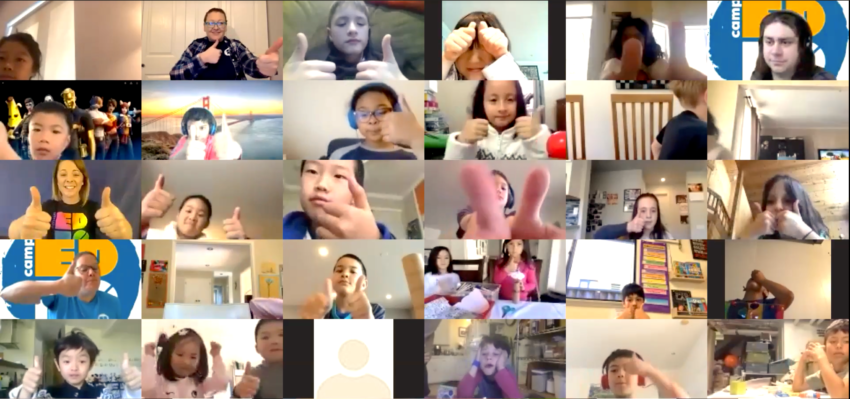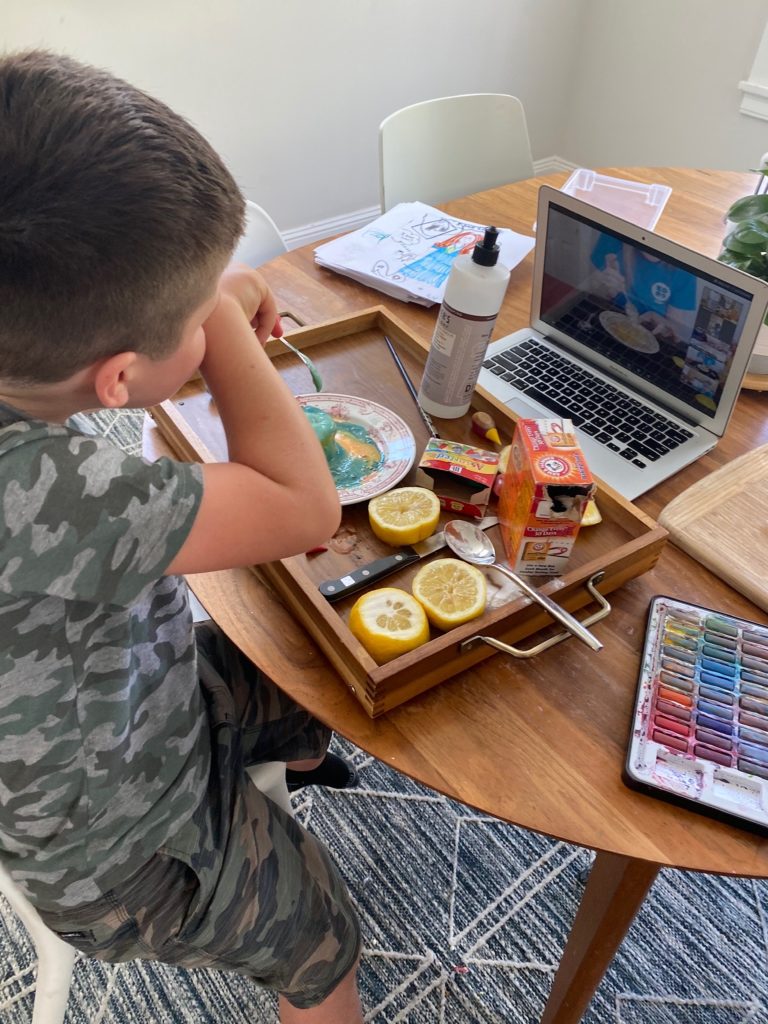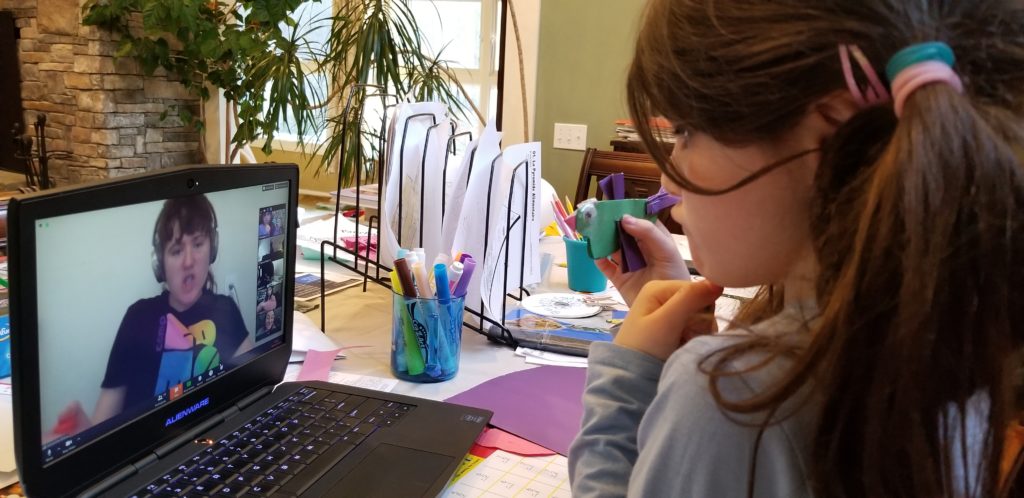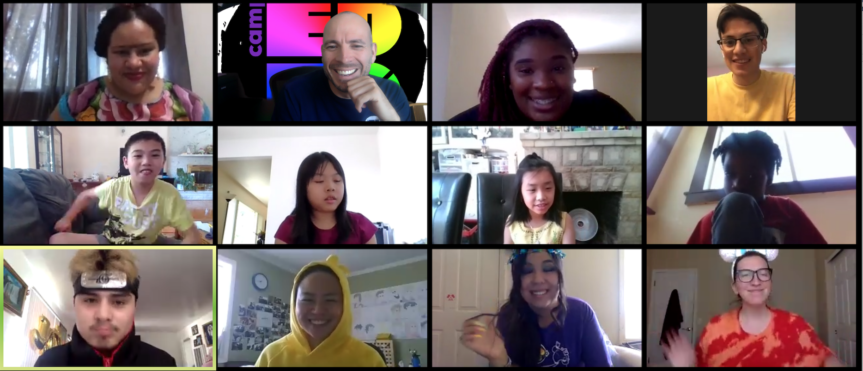Summer camp, like seemingly every other activity available for children in the middle of the COVID-19 pandemic, has gone virtual. By moving online, leaders at Camp EDMO found they could also provide the camp experience to more young people, while doing so more equitably.
Camp EDMO, for 17 previous years, was an in-person camp. Last summer, the camp served 10,000 students across 32 camps in Northern California.
In March, with schools closing, Camp EDMO leaders started to get a sense that summer might not happen the same way this year. They met to discuss how they could move the camp online. Camp EDMO is focused on developing STEAM and SEL skills in students grade PreK-8th. Students learn science concepts and take part in activities like coding, while being encouraged to work together and practice empathy.

Moving the camp completely online meant not only adapting the programming, but ensuring all kids who live in different environments, and may not have a yard or supplies lying around that others do, can still participate. A week after shelter in place started, they opened enrollment and that Monday they launched an online camp.
The virtual restart allowed Camp EDMO to try something new: equitable pricing.
“We said, ‘let’s go 100 percent with our values, 100 percent with equity. Let’s go with an honor system pricing model,’” said Eduardo Caballero, the co-founder and executive director of Camp EDMO. “It’s something that hasn’t been tried before in the camp world, and it feels right. It aligns with our values and allows us to address equity during a time where someone needs to do something right now.”

This is way equitable pricing for Camp EDMO works: the camp has a baseline rate of $15 per hour for camp. When someone registers for camp, there are also “honor” codes listed, one for 50 percent off, the other for 80 percent off. Families paying the full price are also given the option to donate to Camp EDMO when they register their child. Caballero said the idea is not for families to get a discount, but for more families to be able to afford to send their kid to camp.
In previous years, Camp EDMO had a limited number of spaces covered by financial aid. Caballero said the equitable pricing system, which hasn’t been tried in the camp world as far as Caballero knows, is a much better fit.
“It’s the definition of equity — the people who have more pay more than those who have less,” Caballero said. “Everyone gets first choice, everyone comes in the door at the same time. Those who need help don’t need to go through the humiliation of filling out a long application and share intimate details about their finances.”
By moving online, there are also fewer restrictions on where campers live. Caballero said there have been campers this year from 47 states and seven countries, creating a space where students from all kinds of different backgrounds can learn together.

Caballero said he recognizes how stark inequities are that have been fully revealed by the pandemic. He said, as a society, if we really cared about kids, we’d be doing everything we could to prevent the equity gap from widening.
“So only the families who can afford online learning get online learning, those families who can’t afford it get nothing?” he said. “We have to design new systems to overcome this. Honor system pricing parents to be a force for equity in education.”

